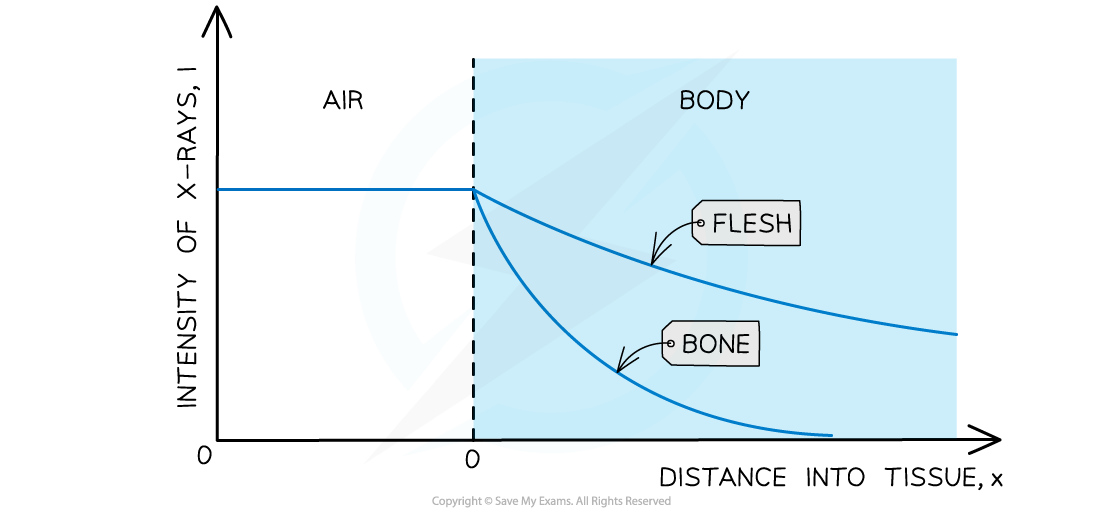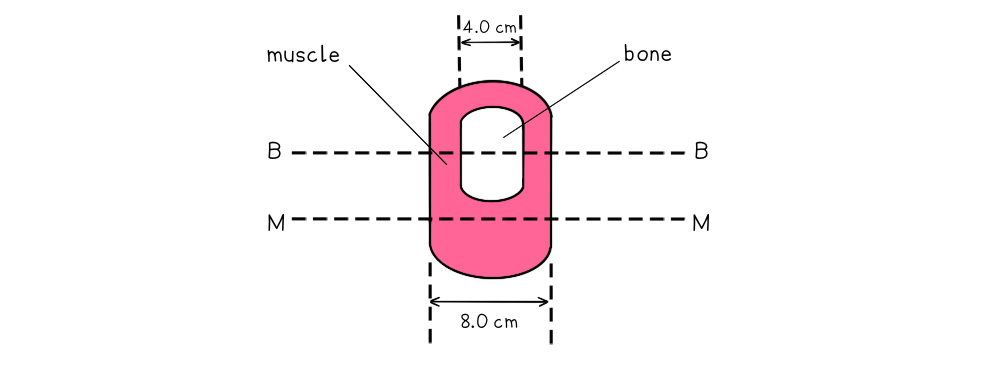Calculating X-ray Attenuation (OCR A Level Physics): Revision Note
Exam code: H556
Attenuation of X-rays in Matter
Bones absorb X-ray radiation
This is why they appear white on the X-ray photograph
When the collimated beam of X-rays passes through the patient’s body, they are absorbed and scattered
The attenuation of X-rays can be calculated using the equation:
I = I0 e−μx
Where:
I0 = the intensity of the incident beam (W m-2)
I = the intensity of the transmitted beam (W m-2)
μ = the linear absorption coefficient (m-1)
x = distance travelled through the material (m)
The attenuation coefficient also depends on the energy of the X-ray photons
The intensity of the X-ray decays exponentially
The thickness of the material that will reduce the X-ray beam or a particular frequency to half its original value is known as the half thickness

Absorption of X-rays by different materials
Worked Example
A student investigates the absorption of X-ray radiation in a model arm. A cross-section of the model arm is shown in the diagram.

Parallel X-ray beams are directed along the line MM and along the line BB. The linear absorption coefficients of the muscle and the bone are 0.20 cm-1 and 12 cm-1 respectively.
Calculate the ratio:
for a parallel X-ray beam directed along the line
a) MM
b) BB
and state whether the X-ray images are sharp, or have good contrast.
Answer:
Part (a)
Step 1: Write out the known quantities
Linear absorption coefficient for muscle, μ = 0.20 cm-1
Distance travelled through the muscle, x = 8.0 cm
Step 2: Write out the equation for attenuation and rearrange
I = I0 e−μx
Step 3: Substitute in values and calculate the ratio

Part (b)
Step 1: Write out the known quantities
Linear absorption coefficient for muscle, μm = 0.20 cm-1
Linear absorption coefficient for bone, μb = 12 cm-1
Distance travelled through the muscle, xm = 4.0 cm
Distance travelled through the bone, xb = 4.0 cm
Step 2: Write out the equation for attenuation for two media and rearrange

Step 3: Substitute in values and calculate the ratio

Step 4: Write a concluding statement
Each ratio gives a measure of the amount of transmission of the beam
A good contrast is when:
There is a large difference between the intensities
The ratio is much less than 1.0
Therefore, both images have a good contrast

Unlock more, it's free!
Did this page help you?